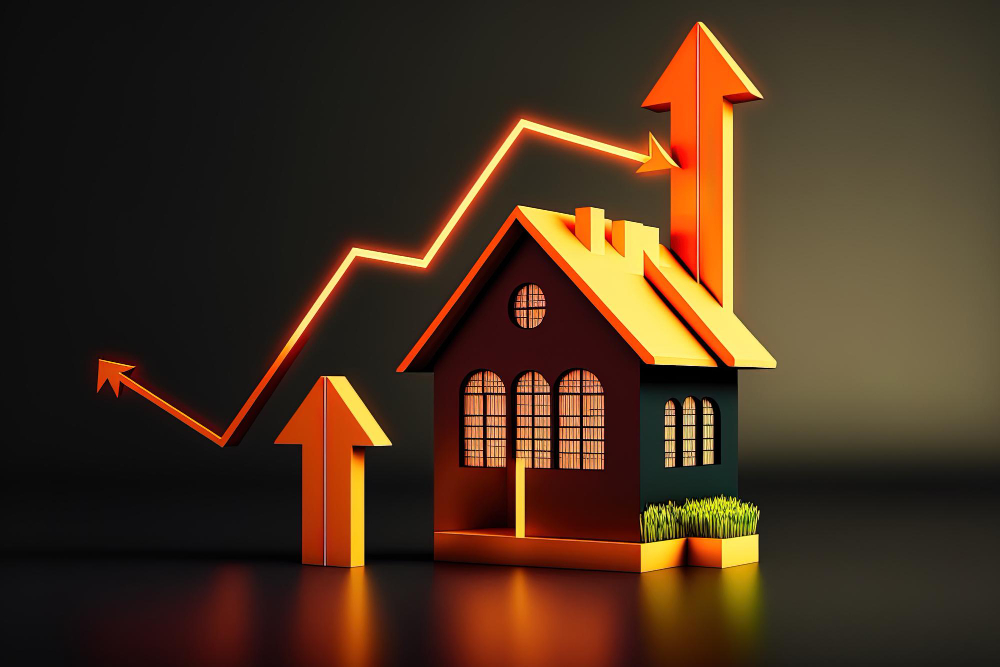If your lender raises their fixed-rate loan just before you close your mortgage, you may lose the lower rate you initially applied for.
This means that you will now pay a higher interest rate.
A rate increase before the settlement is more frequent than you might imagine.

What exactly is a Rate Lock?
It is insurance that guarantees you the offered fixed interest rate regardless of any increases in interest rates during the settlement procedure.
- Is the location where you are taking out or applying for a fixed-rate loan?
- Although it is a fixed-rate loan, the rate is not guaranteed until settlement
- The rate lock guarantees the rate at the time of application, so you are not affected if rates change before your loan settles
- The rate lock typically covers ninety days
- The cost is typically a fixed fee or a percentage of the mortgage amount
- The rate lock typically covers ninety days.
How does a rate lock function?
A rate lock serves to secure the fixed interest rate you requested.
If interest rates rise between the time you apply for your home loan and the time it closes, you will receive the rate you requested.
In other words, a lender offers to guarantee your loan’s interest rate for a specified period, typically 90 days.
Typically, there is a fee for a rate lock, which is discussed below.
Many individuals are unaware of this, but the interest rate you end up owing on your fixed loan is the rate the lender established on the date of your loan settlement.
It is not the rate your bank or mortgage broker told you when you applied for a home loan.
A few things must occur for your loan to go from application to settlement, including approval, the signature of loan documents, and both the loan and property settlements.
This can take anywhere from four to six weeks to several months.
You run a greater risk of lenders increasing their rates in this circumstance so that you may pay more in interest over the fixed term of your loan.
How long is a rate lock-in effect?
Most banks offer 90-day rate guarantees, while others offer 60-day ones.
If a rate lock is essential for your specific circumstances, we will consider lenders with a more extended rate lock period of 90 days.
What is the charge for rate lock?
There are two types of rate fix fees charged by lenders:
- A flat fee between $375 and $1,000; or 2. A percentage of the loan amount ranges between 0.10 and 0.15 percent.
The rate lock fee is the same for both 1-year and 5-year rate fixes.
In some instances, the size of the fixed amount can impact the rate lock fee.
Some lenders advertise that they will secure the interest rate at no cost, but the price is typically already incorporated into the loan.
Although it is an additional fee, we do not recommend selecting a mortgage lender because they are the only ones who do not charge a rate lock fee.
On the day of settlement, if you have paid a rate lock fee, the lender may offer you either the fixed rate on offer OR the rate you locked, whichever is lower.
- Lender 1: $750 up to $1,000,000 up to 5 years
- Lender 2: $450 or 0.15 percent of the loan amount – whichever is greater
- Lender 3: Does not charge a fee, but there are restrictions on how rate lock applies.
Again, we recommend discussing this with you.
Should I pay a fee to secure a rate?
You are currently applying for a fixed-rate loan.
In addition to selecting a lender and rate, you examined your household budget to determine how much you could afford to pay for loan repayments.
You are confident that you can make the loan payments after consulting with a mortgage broker, so long as interest rates don’t rise for a few years (which is why you are fixing in the first place).
You also want assurance that your loan repayments will not be affected by a rate increase by your lender before your loan resolves in 60 days.
From a financial standpoint, you should be able to predict your repayments.
Therefore, you must pay a rate fix fee.
Here are the statistics:
- Two-thirds of your loan, or $600,000, is fixed (out of a total loan amount of $900,000, one-third is variable, and two-thirds is designated).
- The three-year fixed rate you wish to secure is 4.25 percent (the rate you requested on your loan application)
- By paying a rate lock charge, you are protected so that no matter what the three-year fixed rate is in 60 days, you will still receive 4.25 percent.
- The rate lock fee for a loan of this magnitude ranges from $800 to $1,250.
Suppose the bank increases your fixed interest rate to 4.75 percent a few weeks before closing, and you did not pay a rate lock fee.
- Your monthly payments are increased by $179
- Over the 3-year fixed term, this amounts to $6,444
- In this circumstance, you would be better off paying the rate lock fee.
In a climate where interest rates rise significantly, this gives you peace of mind.
Is rate lock beneficial?
It boils down to the value of your peace of mind and conviction.
Rate lock costs typically range from a flat fee (typically between $375 and $1000) to a percentage (typically between 0.10 and 0.15% of the loan amount being locked) of the loan amount.
The fee’s value depends on how much you believe interest rates will change.
Even economists may need help predicting when banks will increase their fixed rates.
However, we are intimately familiar with this topic, so we can offer guidance on how to proceed.
Let me give you some examples.
I would suggest contemplating a rate lock in this circumstance
When determining whether a rate lock is necessary, we, as mortgage brokers, also consider several of the following indicators.
- You would like to extend your $800,000 loan term to five years.
- Because of the volatile interest rate environment (which we are currently experiencing), lenders frequently raise rates.
- Because you have a 5-year fixed-rate period, the impact of being on the higher rate will be more significant on your finances.
- Does your lender currently offer significantly reduced interest rates than competitors (say 0.25 percentage points less)? If your lender does so, it is likely that they will increase their interest rates to mirror the market.
- Another factor is the disparity between rates and fees. For instance, if you are paying the 0.1% rate lock fee and interest rates have only risen by 0.02%, then you are probably better off paying the 0.1% rate lock fee because five years at 0.02% is more significant than 0.1%.
Why do banks charge a fee to lock in a rate?
As a type of insurance, rate hold fees are assessed.
As you would pay for insurance on your home or vehicle, you pay for insurance against rising interest rates.
The rise in interest rates does not affect you.
A fee guarantees that you will not be required to pay a higher interest rate to repair your loan.
When is a rate lock more crucial?
The rate lock is more relevant and should be considered during periods of rising interest rates AND:
- Longer fixed term – the longer the fixed term for which you apply, the more you should consider the rate lock, i.e., five years is more likely than one year.
- Peace of mind – when you have a fixed budget for loan repayments and don’t want to risk increasing interest rates
- Your rate vs. that of other lenders – the lower the rate you can get with the bank you’re considering, relative to that of different lenders, the more you should consider that bank. rate control
- Type of rate of lock fee versus loan size – if you are paying a fixed rate fee for a larger loan. So, paying $750 does not matter whether you are repairing a $100,000 or $1,000,000 home. It does not take long for the interest savings to outweigh the rate lock fee on a larger loan.
What are the disadvantages of rate locking?
The two primary considerations are:
- The fee you paid regardless of whether interest rates rose between the time you applied and settlement.
- Will you receive the lesser rate if banks decrease the fixed rate during the rate lock guarantee period (rather than raise rates)?
When does rate locking begin?
This varies by the bank; for instance, banks may implement the rate lock fee when:
- You apply for the loan
- You pay the rate lock fee
- The loan is approved unconditionally.
As the policies of each bank vary, it is recommended to check with us first.
Stay with your current financial institution to avoid rate lock.
If you remain with the same financial institution, they will frequently repair a portion of your loan at no cost.
If you have an existing loan with that bank and are seeking to refinance it with them, you can typically do this online and have the paperwork sent to you to sign or call them to lock in the rate.
99% of the time, it is always a good idea to check, and we would always check for you if we were assisting you as soon as you have notified the bank that you want to fix your loan and what portion of it they will guarantee that rate for a certain period.



